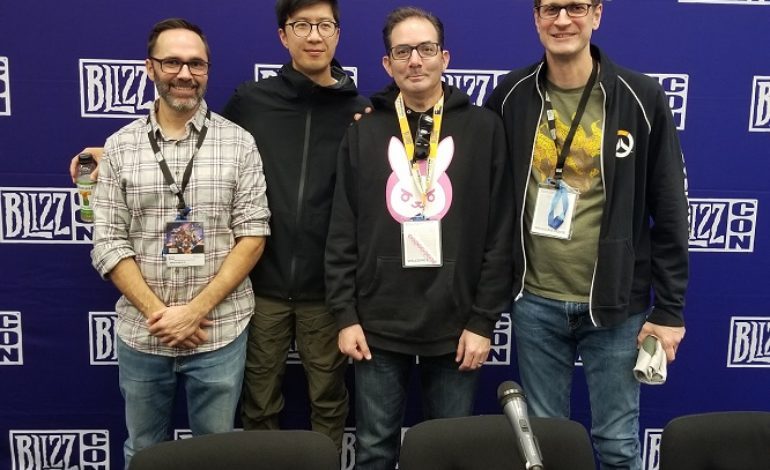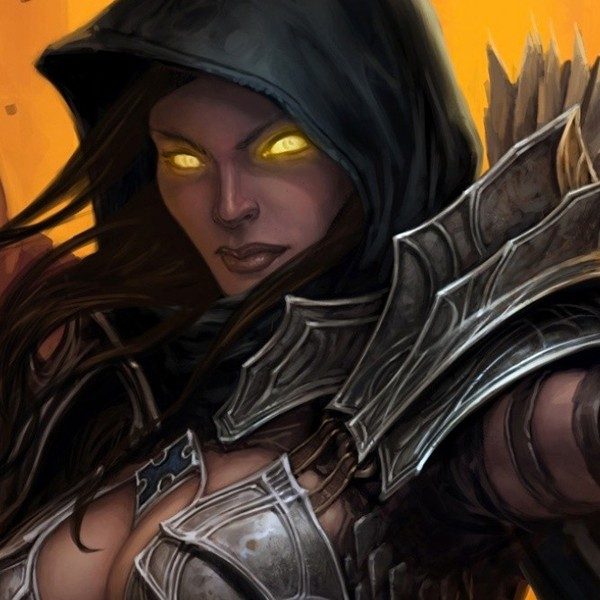

It’s pretty safe to say that those in attendance were absolutely floored by the announcement of Overwatch 2. The absolutely stunning cinematic, along with the plethora of new information that came with it, Overwatch 2 may have already won the hearts of many fans in one fell swoop. Sure it’s going to be a long time until we actually have it playable on our home systems, but the fact that we already have so much knowledge on just the first day of BlizzCon is nothing short of amazing.
Speaking of which, Overwatch 2 introduces a brand new progression system, similar to an RPG game mechanic. This is most prevalent in the PvE mode Hero Missions. Obviously this is something that the development team felt was important, and it shows in the gameplay. We were able to sit in on a group interview with Jeff Kaplan and some of the other developers, and we asked Jeff how they arrived at the progression system, and how it changed throughout the development process.
mxdwn: How did you and the team arrive at the progression system with the creative process and how much did it change before you came to this decision?
Jeff Kaplan: “Well, it’s still going through that. The awesome part on our team is we have people who have worked on a lot of different games. We have people who have worked on World of Warcraft, Diablo, StarCraft, and that’s just Blizzard games. All of those games have different progression systems and we’re constantly playing games, it’s a real value. There’s a new discussion every week about what’s cool and what’s interesting.”
“The most recent and interesting discussion happened because of all things, WoW Classic. That was really cool as we started to talk about ‘Are there lessons from WoW Classic that’d be cool in Overwatch’s progression system?’ I was somebody who had worked on WoW in the early days, the original game, Burning Crusade, and Wrath of the Lich King. I had a great conversation with Tom Chilton, who was the game director from Cataclysm through Legion. “
“We were talking about talents in World of Warcraft, as he and I felt that the talent system has changed greatly in WoW over time. We talked about how the original WoW talent system was not bad and broken, it was actually very strong. Tom and I also felt that the system held up pretty well in Burning Crusade but it completely and utterly broke in Lich King because we kept extending the talent trees down, which gave you less and less choice than in the earlier trees.”
“The system wasn’t designed for infinite length to it, that wasn’t something that we were really thinking about at that time. It was an example of ‘That was actually a really cool system depending on how many levels it had to support.’ So it became a good influence for us and we have an awesome guy name Matt Goss on our team who’s working on a progression system right now. He and I had this really cool conversation about on how even though World of Warcraft in 2019 has moved away from that talent system that existed back in 2004, there are some lessons there that could actually be cool in Overwatch 2. So it’s fun, this is what game designers love to do.”
Jeff makes a good case here, as going back and seeing what worked and didn’t work in past projects is almost always a recipe for success. It’s also refreshing to hear that they’re still tinkering around with the game as a whole, and that there isn’t any final decision just yet. Overwatch 2 is shaping up to be a serious contender in the long run, especially with the ingenious compatible playability with the original Overwatch.
When asked about Overwatch 2’s release time frame, Jeff only had a few words for us; “Not this year.” His tongue in cheek humor notwithstanding, it’s apparent that this is still a work in progress, and it will be a long time before we hear anything about a release date. Overwatch 2 will launch for the PlayStation 4, Xbox One, and PC. Stay tuned for more coverage from BlizzCon 2019!
Photo taken by Alex Levine of mxdwn
Play games, take surveys and take advantage of special offers to help support mxdwn.
Every dollar helps keep the content you love coming every single day.

